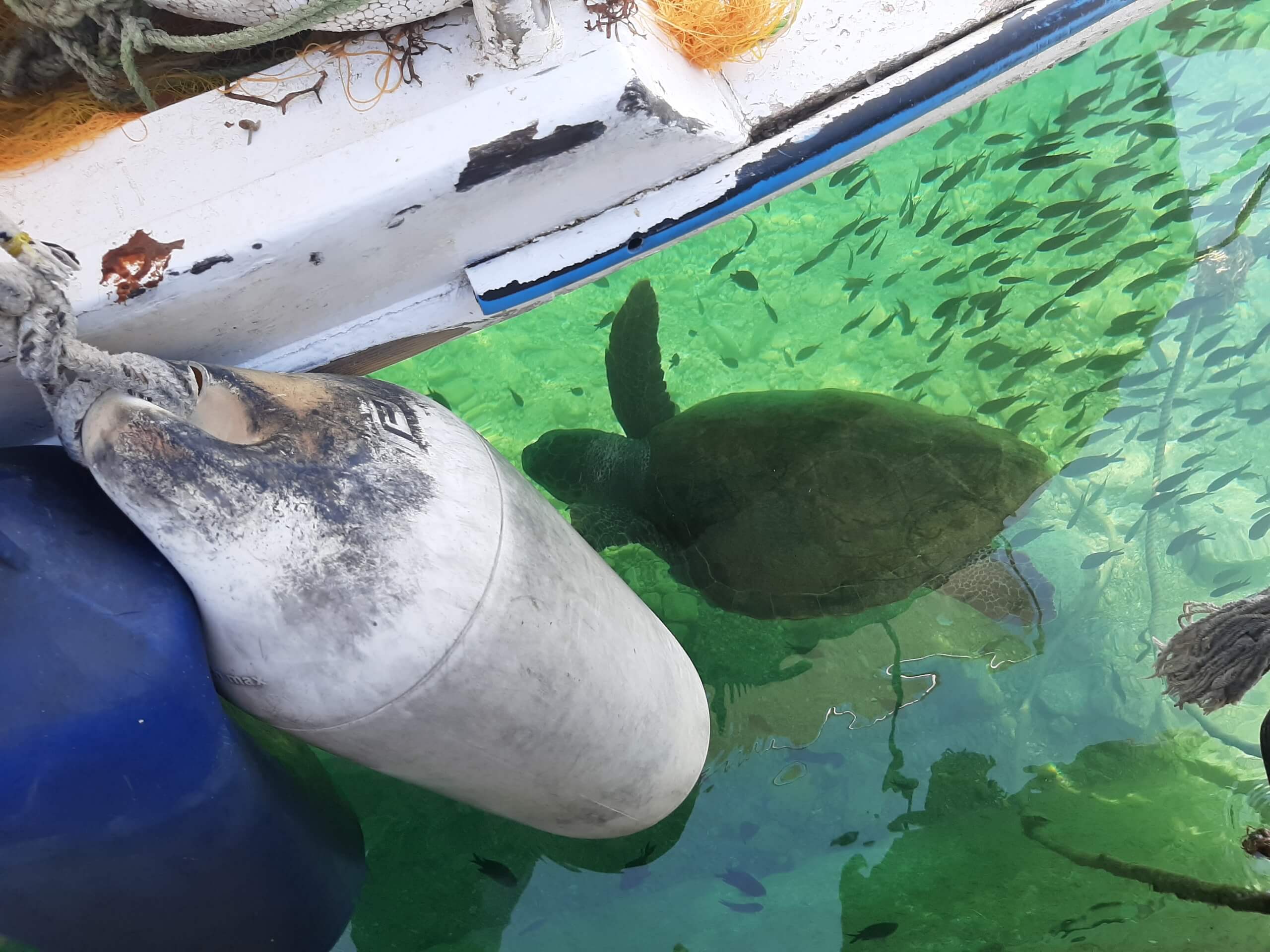REDUCING BYCATCH AND PROMOTING COEXISTENCE BETWEEN FISHERS AND MARINE MEGAFAUNA

Species
Marine mammals, sea turtles, elasmobranchs, seabirds
Organization
WWF GREECE
Duration
March 2023 - December 2025
Region
Greece
THE NEED
Interaction between marine megafauna species (marine mammals, sea turtles, elasmobranchs and seabirds) and small-scale fisheries in the Greek seas, is a complex phenomenon with negative consequences for both sides. On one hand, the animals run a risk of being accidentally caught in fishing gear, and on the other hand, fishers may suffer substantial economic losses due to such interactions. Scientists and policymakers have long recognized that entanglement in fishing gear is one of the main human-induced causes of mortality for the aforementioned species, globally, and at the same time an important factor responsible for small-scale fishers’ loss of income.
In order to achieve reduction of bycatch of vulnerable species, and to promote coexistence between fishers and marine megafauna, WWF Greece is advocating for a national compensation scheme for small-scale fishers. The scheme should cover damage to small-scale fishers’ equipment and loss of income due to interactions with marine mammals.
THE PROGRAM
WWF Greece has strongly advocated this scheme and shared the results of the “InCa: Addressing the interaction between small-scale fisheries and marine megafauna in Greece” project, which documents the extent and impact of this interaction, proposing solutions for the mitigation of the phenomenon. However, despite having acknowledged the need and having proceeded to initial commitments to develop this national financial support system, competent authorities have not yet acted towards this direction.
Within the framework of the program, and responding to the recent restructuring of relevant ministries, WWF Greece will continue to exert political pressure for the development and implementation of the national compensation scheme. Furthermore, through adoption of more aggressive advocacy actions, as well as publicity actions through media, it will reveal the lack of political will and the state bodies’ failure to take any initiative for the immediate mitigation of this important matter.